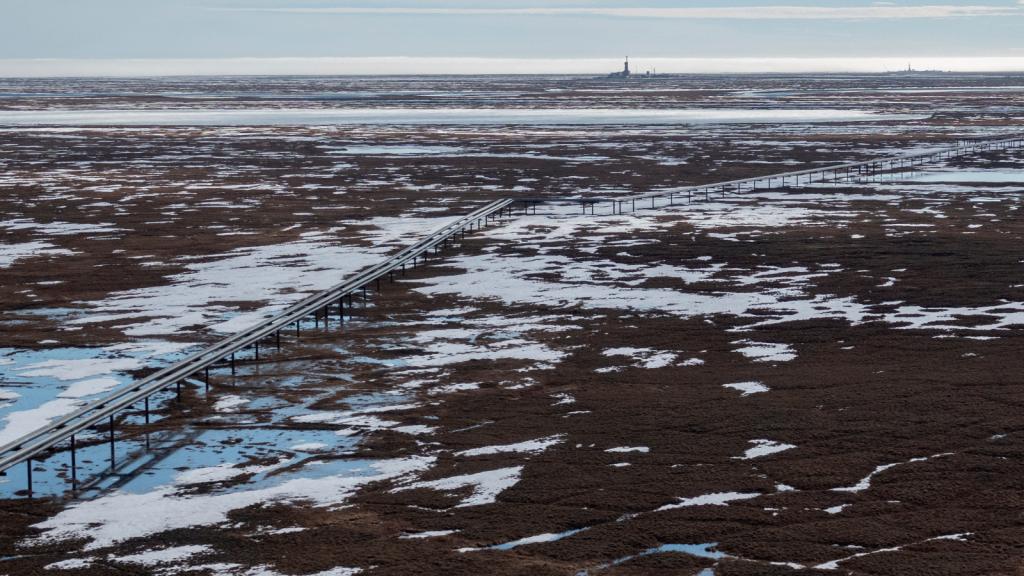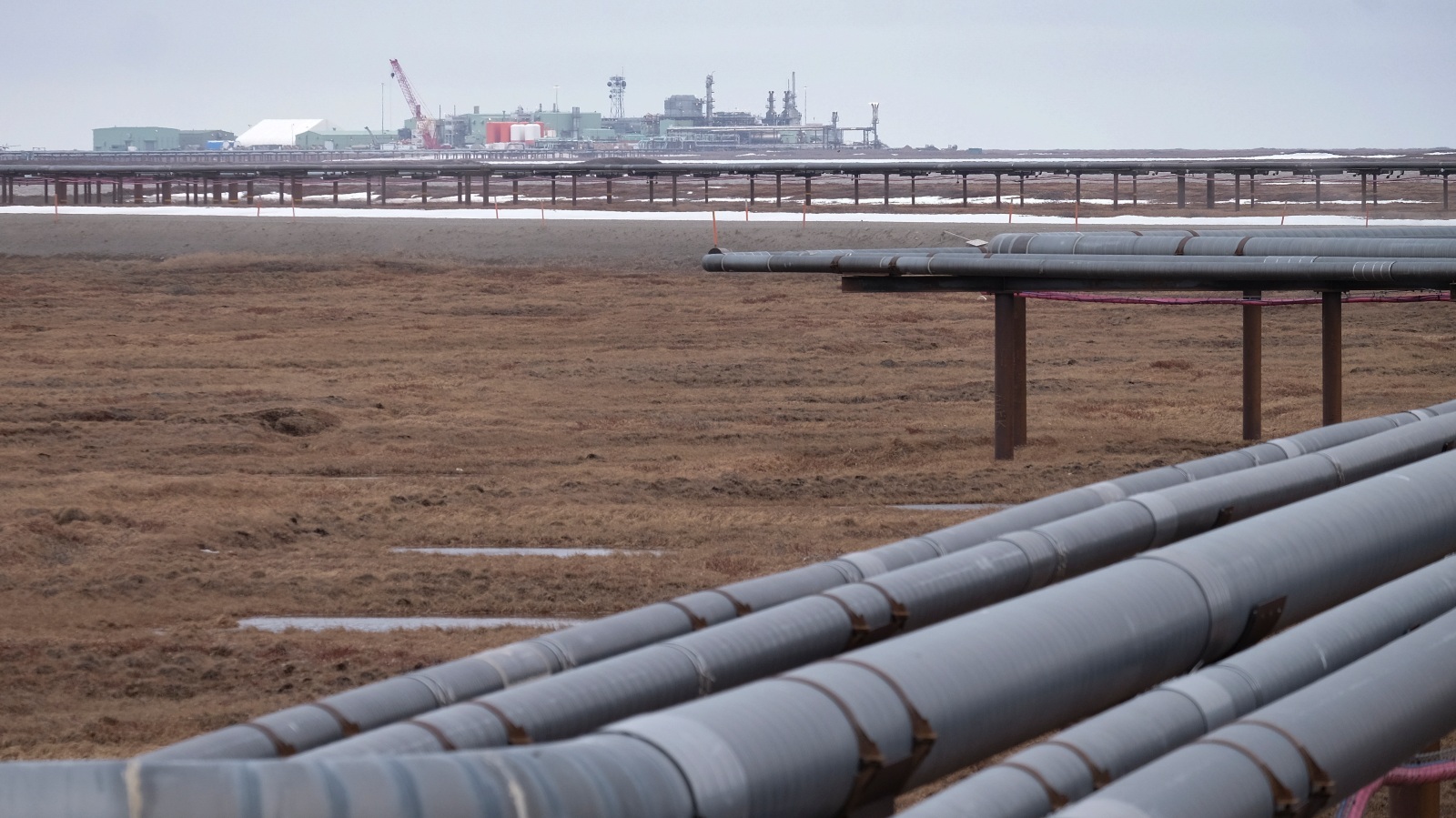For more than three weeks, the Alaska Native Village of Nuiqsut, Congressional Democrats, and conservation groups have been urging the Department of the Interior to extend the public comment period on a draft environmental impact statement for one of the largest proposed onshore oil and gas development projects in the United States. If approved, the ConocoPhillips venture, known as the Willow project, would allow for construction of up to 250 wells, a network of gravel roads and pipelines, and a new central processing facility in the government-managed National Petroleum Reserve, about 35 miles west of Nuiqsut.
Democrats in the House of Representatives had asked for a response to their letter requesting an extension by July 22, but the Interior Department missed that deadline, Grist reported last week. Environmental groups hoped for an answer in advance of several public meetings on the draft environmental statement, the first of which took place Monday evening. They also still haven’t heard back.
The city of Nuiqsut, however, got an answer from the Interior Department on Friday. According to three sources with direct knowledge of the correspondence, the Bureau of Land Management’s Alaska office told the city that the comment period would be extended until the end of September. City officials were also informed that a public meeting in Nuiqsut scheduled for Thursday, August 11 would be moved to the middle of next month, giving residents more time to balance the seasonal demands of the summer subsistence harvest with having to comment on a project that will have a dramatic effect on the region for decades to come. According to two Interior employees who were not authorized to speak on the record, the agency had begun to prepare a federal register notice to announce the new schedule.
Over the weekend, though, the department reversed course. On Monday morning, Mayor Rosemary Ahtuangaruak received a phone call, she told Grist, from the Willow project manager, Stephanie Rice, telling her that the public comment period would not be extended. The Interior Department was reverting to the minimum 45-day public comment period required by law, despite telling Nuiqsut officials just days before that it would honor requests for an extension.
According to one source in the Biden administration briefed on the latest decision, who asked not to be identified for fear of retribution, political considerations regarding the passage of the Democrats’ major climate and energy bill contributed to the abrupt reversal. The legislation, which was unexpectedly unveiled by Senators Chuck Schumer and Joe Manchin on July 27, passed the Senate on Sunday by a narrow party-line vote. It is expected to be voted on in the House by the end of this week. Manchin has not publicly discussed Willow in connection with the new bill, but the West Virginia Democrat explicitly tied his support for the legislation to the fast-tracking of some fossil fuel infrastructure projects, including the Mountain Valley Pipeline in his home state. The Willow project is a top priority for Manchin’s Republican ally, Alaska Senator Lisa Murkowski, who faces a tough reelection fight this year.
Interior officials did not respond to specific questions from Grist about why the department reversed course over the weekend. But in a written statement, an agency spokesperson did confirm that the comment period would end on August 29 — the original deadline. “We intend to hear from the public and people on the North Slope during that time,” the Bureau of Land Management spokesperson wrote. “We also are committed to continuing government-to-government consultations.”
Ahtuangaruak told Grist that Interior Department officials did not explain why they’d changed course. She also said the reversal created substantial logistical problems for Nuiqsut, which had already sent out an email to the city council explaining that this Thursday’s meeting on the draft environmental statement was going to be rescheduled for next month. August is also one of the busiest seasons for subsistence harvesting and many residents are already out moose and caribou hunting, Ahtuangaruak said, and getting ready for the fall whale hunt.
“The whole intent was to give us time, not take it away,” she told Grist.
Conservation groups were also shocked by Interior’s about-face and expressed disappointment that the comment period would not be extended for a project of this magnitude. Willow is projected to release approximately 260 million metric tons of carbon dioxide emissions over its 30-year lifetime, undermining the Biden administration’s efforts to combat climate change.
“This is a step backwards, and it is disheartening to groups that are asking for a thoughtful review process – including the voices in communities that are closest and most impacted by this critical decision,” said Kristen Miller, conservation director for the Alaska Wilderness League.
Willow was first approved during the final months of the Trump administration, but last year a federal court vacated the original environmental impact statement because it did not adequately account for the project’s impacts on global greenhouse gas emissions, among other issues, and ordered the Interior Department to redo parts of its analysis.
In early July, the Biden administration released a new draft environmental statement and announced that it would be open to public comment through the end of August. Alaska’s Congressional delegation and ConocoPhillips are pushing the administration to complete the process as quickly as possible to allow the company to begin construction this winter. The Interior Department is expected to issue a final record of decision later this year.



